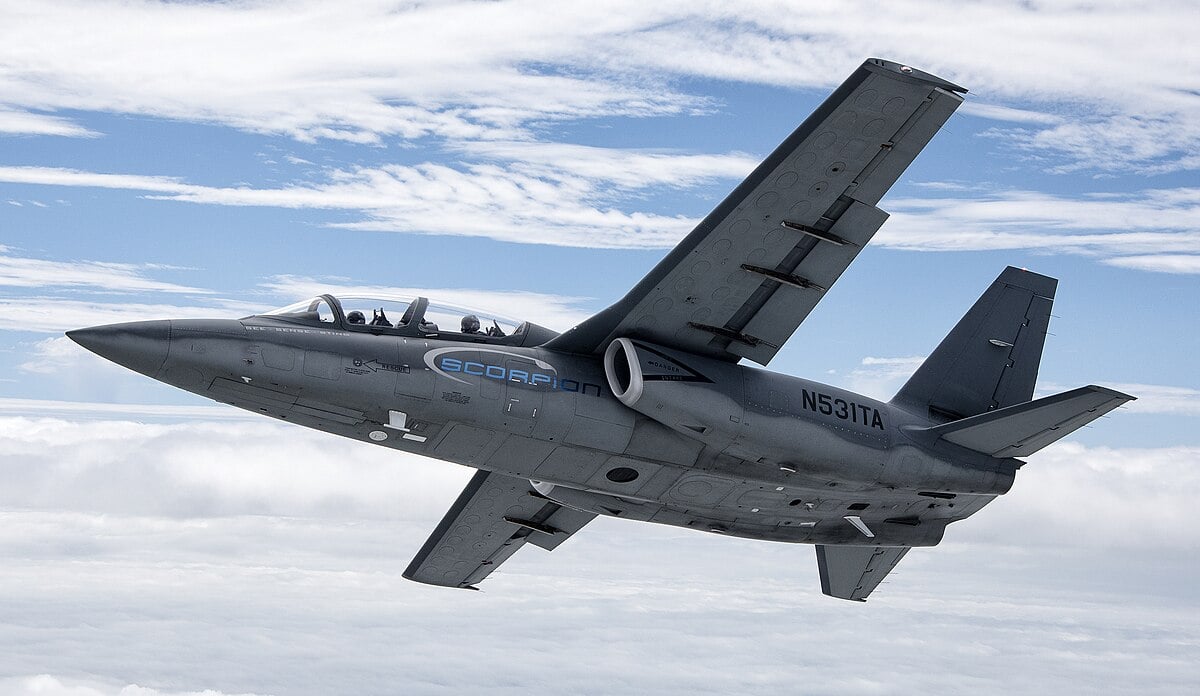The Scorpion is a tandem-seat twinjet aircraft with an all-composite material fuselage designed for light attack and intelligence, surveillance, and reconnaissance missions. Production costs were minimized by using common commercial off the shelf technology, manufacturing resources and components developed for Cessna’s business jets; such as the flap drive mechanism is from the Cessna Citation XLS and Cessna Citation Mustang, the aileron drive mechanism is from the Citation X.[3][6][7][8][25] Textron AirLand calls the Scorpion an ISR/strike aircraft, instead of a “light attack” aircraft. The joint venture also states the Scorpion is intended to handle “non-traditional ISR” flights such as those performed by U.S. fighters in Iraq and Afghanistan. The Scorpion is designed to cheaply perform armed reconnaissance using sensors to cruise above 15,000 ft, higher than most ground fire can reach, and still be rugged enough to sustain minimal damage.[26]
The Scorpion is designed to be affordable, costing US$3,000 per flight hour, with a unit cost expected to be below US$20 million.[22]
Vs F-16 “more recent variants starting at $25 to $30 million but potentially reaching $60 to $70 million with improvements.” and $22,000 per hour.
Vid of it https://youtu.be/q7qwQGksyPk
They hope it will replace the A-10.



Honeywell Aerospace employee here. If you’ve ever flown with any major airline, there’s a very high chance the plane you were on had one of our auxiliary power units, which is basically a smaller turbine engine that starts the main engines and powers the electronics. We also make Christmas trees!
I will always think fondly of Honeywell because they assisted Kubrick and his production designers create plausible computer technology for 2001: A Space Odyssey based on what they understood in 1968.
Those must be some expensive Christmas trees.